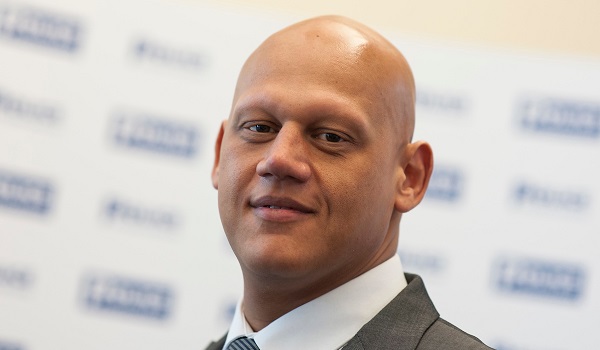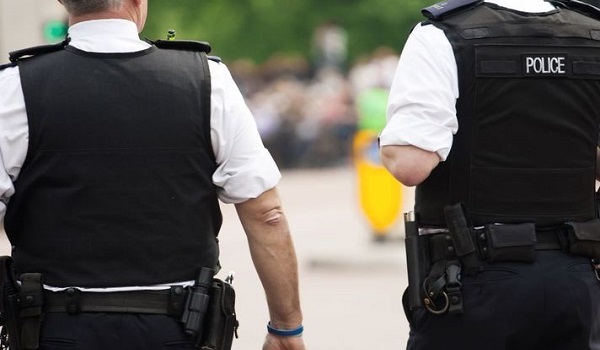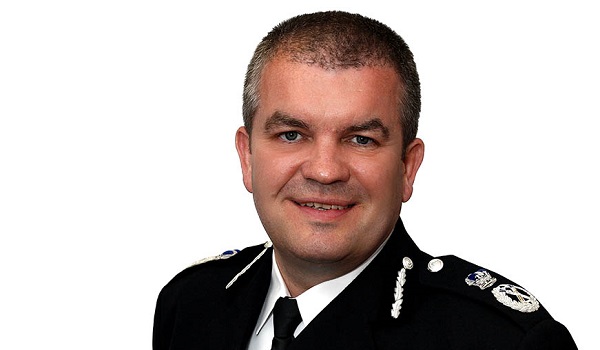IOPC is a 'state-sanctioned risk' to police officers' welfare
The Independent Office for Police Conduct (IOPC) is currently a “state-sanctioned risk to the welfare of police officers and their families”.
That’s the view of Greater Manchester Police Federation, which has witnessed the thousands of police officers it represents be subject to incredibly damaging IOPC probes – some that have dragged on for five years or more.
Federation chair Stu Berry said that while police officers have no objection at being held accountable for their actions, the IOPC and its investigators spend far too long srutinising their work in what at times can feel like a “rampant and unchecked misuse of power”.
Mr Berry said that the IOPC’s investigations had led to “a shocking situation for policing”, giving examples of two Greater Manchester Police officers who were going through extremely long investigations.
He said: “I need to highlight the situation of two officers we are currently representing within Greater Manchester Police Federation, who have 23 and 13 years of service. The first has been subject to investigation for over a quarter of their police service and the second nearly half of their police service, as a consequence of their individual IOPC cases.
“That is not a misprint. Please take a few seconds to attempt to absorb that absurd and indefensible waste of public funds.
“It is an indictment within a country purporting to be a leading light of fairness and justice, within a population policed by consent.
“The IOPC is a state-sanctioned risk to the welfare of police officers and their families in its current form, despite the new name. It was previously the Independent Police Complaints Commission and nothing has altered. This rampant and unchecked misuse of power must change. It has to change.”
The Home Affairs Select Committee is currently looking into the IOPC’s timescales for investigating police officer conduct.
As part of the Police Federation of England and Wales (PFEW) #TimeLimits campaign, the Federation will be giving evidence to Parliament tomorrow (January 27) on the detrimental and costly impact of lengthy disciplinary investigations on police officers, their families and their colleagues.
PFEW’s Time Limits campaign has pushed for investigations into police officers to be capped at 12 months. The IOPC’s figures from 2019/20 show that cases open for longer than 12 months had decreased from 24 per cent to 17 per cent.
Mr Berry said the Government’s intervention was just what was needed, adding: “My hope does not sit with IOPC leaders, as that has proved fruitless. The restoration of some measure of credibility now sits with the Government and those with the power to make a change for police officers and the service we provide to the public.
“My support, and I am sure, the support of every police officer throughout England and Wales, goes to our PFEW colleagues who will give evidence at the Home Affairs Select Committee on our behalf.”
PFEW national conduct and performance lead Phill Matthews said: “Protracted disciplinary investigations have ruined the careers of multiple colleagues, left a mark on their mental health, and placed pressure on their home lives and loved ones. It is clear the effects are devastating.
“Public trust in the system will erode if people do not think their complaints will be dealt with quickly. This issue is already something many complainants frequently express.
“We are encouraged the IOPC is keen to work with us rather than against us. However, the issue of investigations rumbling on for more than a year still continues, and enough is enough.”
A spokesperson for the IOPC said that since it was founded, more than 1,350 invesigations had been undertaken and that 90 per cent are now being completed within 12 months.
“The IOPC has made significant achievements in improving the timeliness of investigations and many of the delays which can occur are outside of our control. It is disappointing and misleading that the Police Federation has chosen not to reflect this in the information they have provided,” the spokesperson said.
“In addition to taking on around 700 new investigations of police conduct each year and improving the timeliness of those, of the 538 investigations inherited from the IPCC, only three investigations remain and are near to completion.”
“If we find a police officer has a case to answer for misconduct, we make a recommendation(s) to the relevant force who are then responsible for considering our recommendations and any subsequent action – this is the end of our investigation. We do not determine dates for misconduct hearings which are arranged by police forces, or criminal proceedings which are set by the courts and Crown Prosecution Service. The Federation are often party to these proceedings and will be aware that the IOPC does not determine these dates.”
The spokesperson added that investigations that take longer than 12 months are typically highly complex and often involve historial allegations. Such cases can be further delayed by inquestions, criminal proceeds, legal challenges and other complications.
“We recognise the impact of lengthy investigations on police officers, complainants and families and that is why we are committed to working across they complaints and discipline system to improve the timeliness of our investigation as well as associated processes determined by others.”







